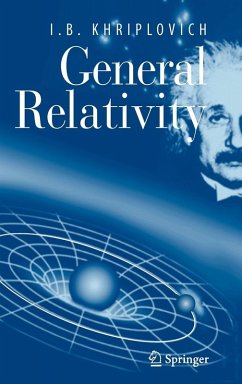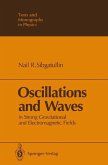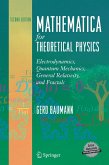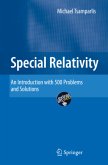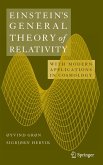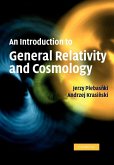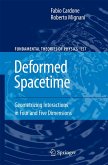This textbook will be an alternative to the standard Landau Lifshitz treatment (in The Classical Theory of Fields), offering a more detailed discussion of specific general relativistic effects. It is intended for a broad readership of of advanced theoretical students and researchers, rather than prospective specialists in General Relativity. Topics include gravitational lensing, the signal retardation in the gravitational field of the Sun, the Reissner-Nordstrem solution, some spin effects, the resonance transformation of an electromagnetic wave into a gravitational one, and the entropy and temperature of black holes
This book offers an alternative to other textbooks on the subject, providing a more specific discussion of numerous general relativistic effects for readers who have knowledge of classical mechanics and electrodynamics, including special relativity. Coverage includes in particular gravitational lensing, signal retardation in the gravitational field of the Sun, the Reissner-Nordström solution, selected spin effects, the resonance transformation of an electromagnetic wave into a gravitational one, and the entropy and temperature of black holes. The book includes numerous problems at various levels of difficulty, making it ideal also for independent study by a broad readership of advanced students and researchers.
I.B. Khriplovich is Chief Researcher, Budker Institute of Nuclear Physics, Novosibirsk, and Chair of Theoretical Physics at Novosibirsk University. Dr. Khriplovich is a Corresponding Member of the Russian Academy of Sciences. He has been awarded the Dirac Medal ``For the advancement of theoretical physics'' by University of New South Wales, Sydney, Australia, and the Pomeranchuk Prize ``For outstanding contribution to the understanding the properties of the standard model, especially for illuminating work on weak and strong interactions of quarks'' by the Institute of Theoretical and Experimental Physics, Moscow, Russia.
Hinweis: Dieser Artikel kann nur an eine deutsche Lieferadresse ausgeliefert werden.
This book offers an alternative to other textbooks on the subject, providing a more specific discussion of numerous general relativistic effects for readers who have knowledge of classical mechanics and electrodynamics, including special relativity. Coverage includes in particular gravitational lensing, signal retardation in the gravitational field of the Sun, the Reissner-Nordström solution, selected spin effects, the resonance transformation of an electromagnetic wave into a gravitational one, and the entropy and temperature of black holes. The book includes numerous problems at various levels of difficulty, making it ideal also for independent study by a broad readership of advanced students and researchers.
I.B. Khriplovich is Chief Researcher, Budker Institute of Nuclear Physics, Novosibirsk, and Chair of Theoretical Physics at Novosibirsk University. Dr. Khriplovich is a Corresponding Member of the Russian Academy of Sciences. He has been awarded the Dirac Medal ``For the advancement of theoretical physics'' by University of New South Wales, Sydney, Australia, and the Pomeranchuk Prize ``For outstanding contribution to the understanding the properties of the standard model, especially for illuminating work on weak and strong interactions of quarks'' by the Institute of Theoretical and Experimental Physics, Moscow, Russia.
Hinweis: Dieser Artikel kann nur an eine deutsche Lieferadresse ausgeliefert werden.
"The book General Relativity by Iosif Khriplovich presents a concise course on theory of gravity. In spite of its limited size of only 116 pages, this book covers the main theoretical notions and experimental phenomena. The author does it in a quite instructive way emphasizing underlying physics. Particularly impressive in this respect are chapters on observable effects, spin interaction, gravitational waves and black holes. The book's comparative analysis of radiation of gravitational waves by ultrarelativistic particles versus synchrotron radiation serves as a best example.
I enthusiastically recommend the book, both to students who have just started studying the field as well as to established researchers." -- Arkady Vainshtein, Gloria Becker Lubkin Chair in Theoretical Physics, William I. Fine Theoretical Physics Institute, University of Minnesota
I enthusiastically recommend the book, both to students who have just started studying the field as well as to established researchers." -- Arkady Vainshtein, Gloria Becker Lubkin Chair in Theoretical Physics, William I. Fine Theoretical Physics Institute, University of Minnesota

